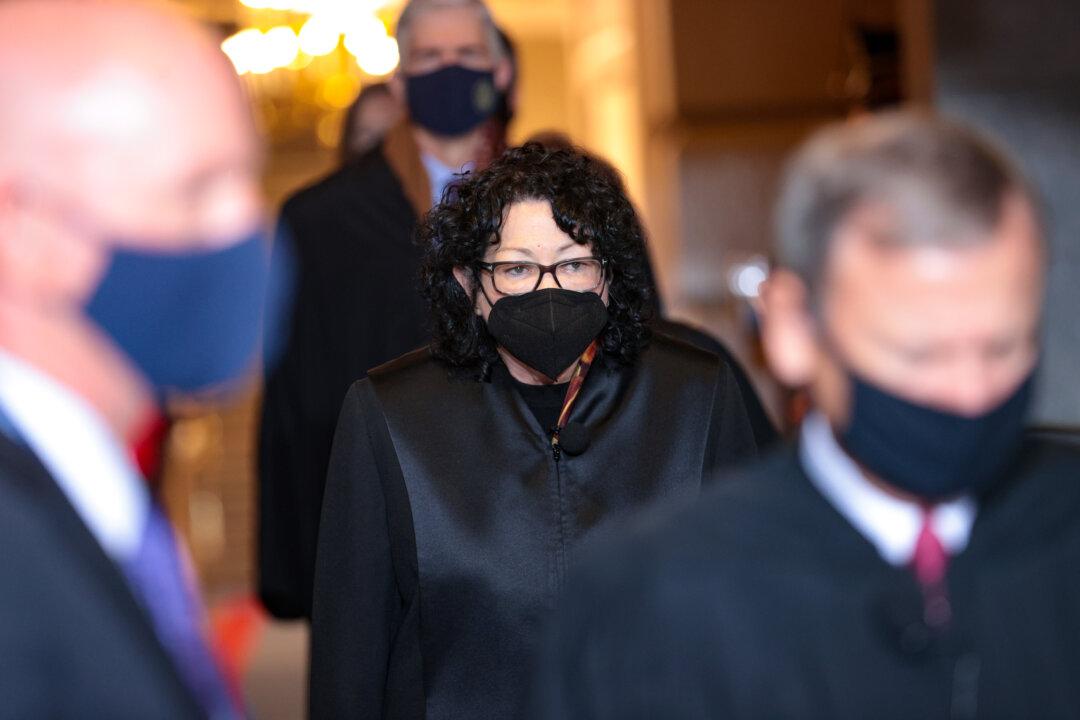Most laws are written generally and many cases that reach the Supreme Court don’t have a clear-cut answer, Justice Sonia Sotomayor said in rare television appearances on Tuesday.
“The biggest misperception that people have is that the law is clear. Most people think of the law as black and white, that there’s an answer. But the reality is, there often isn’t a clear answer. Most of the time when the Supreme Court takes cases, it’s because the courts below have been disagreeing about the answer,” Sotomayor, an Obama nominee, said on “Live With Kelly and Ryan.”





